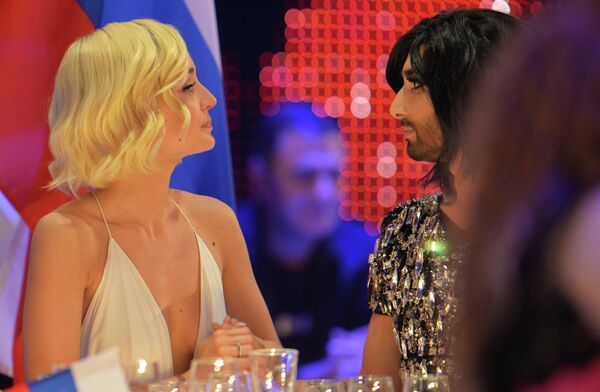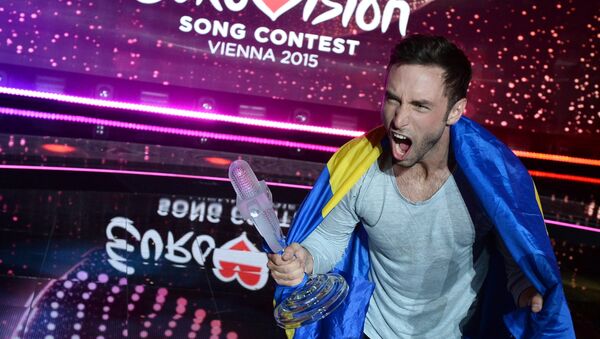Russia had no chance of winning the 2015 Eurovision Song Contest due to its law banning propaganda promoting nontraditional sexual relations among minors, according to the Washington Post, Wall Street Journal and other sources.
“Eurovision fans were constantly reminded, in ways big and small, of Russia’s anti-gay propaganda law, and Polina Gagarina, the songstress representing the country, probably never had a chance because of it,” says the author of the Washington Post Style Blog.
“In recent years, the contest has become a byword for tolerance and diversity,” echoes The Wall Street Journal.

“Austria won last year with Conchita Wurst, a bearded drag queen character created by Tom Neuwirth.In Vienna, the city authorities have decorated traffic lights with images of same-sex couples holding hands. But Russia drew criticism this year for its perceived intolerance toward homosexuals, having passed laws condemning gay 'propaganda' in 2013,” it states.
The Style blogger, however, admits that “Eurovision is all about political voting, even as it tried its best to emphasize its 'Building Bridges' theme and encourage meritocratic voting."
The Telegraph has even come up with a navigation guide to political voting.
The newspaper explains how over time, the contest has proven to become an interesting microcosm of international relations within Europe.
It has made an interactive map and diagrams illustrating “who votes for whom, and what does it all mean”.

“While these aren't exactly Game of Thrones-style warring factions, certain groups of countries tend to score each other’s acts favorably on the night, and are therefore known as voting blocs,” it says.
The newspaper further lists the main voting blocs:
The Balkans – the countries of former Yugoslavia, as well as Romania and Albania.
The former Soviet Union and its 'satellite states' in Eastern Europe
"Would ABBA have been quite so successful if they couldn’t rely on points from Finland and Norway?" it questions.
“While it seems clear that countries vote positively for their neighbors, this doesn’t necessarily mean that other European countries, such as those in the West, are being actively discriminated against. Statisticians from UCL and Imperial College found that no country systematically gives another low points,” it concludes.
Nevertheless, countries that aren’t part of the main voting blocs have still done well.
Taking into consideration all the above, Russian performer Polina Gagarina being voted second best comes even more valuable than an actual victory.
Interestingly enough, according to Ukrainian website 1tv.com.ua, the Ukrainians, who have not sent their singer this year, have also put Polina as second best, slightly below the Estonian contesters and above Sweden's Mans Zelmerlow.





